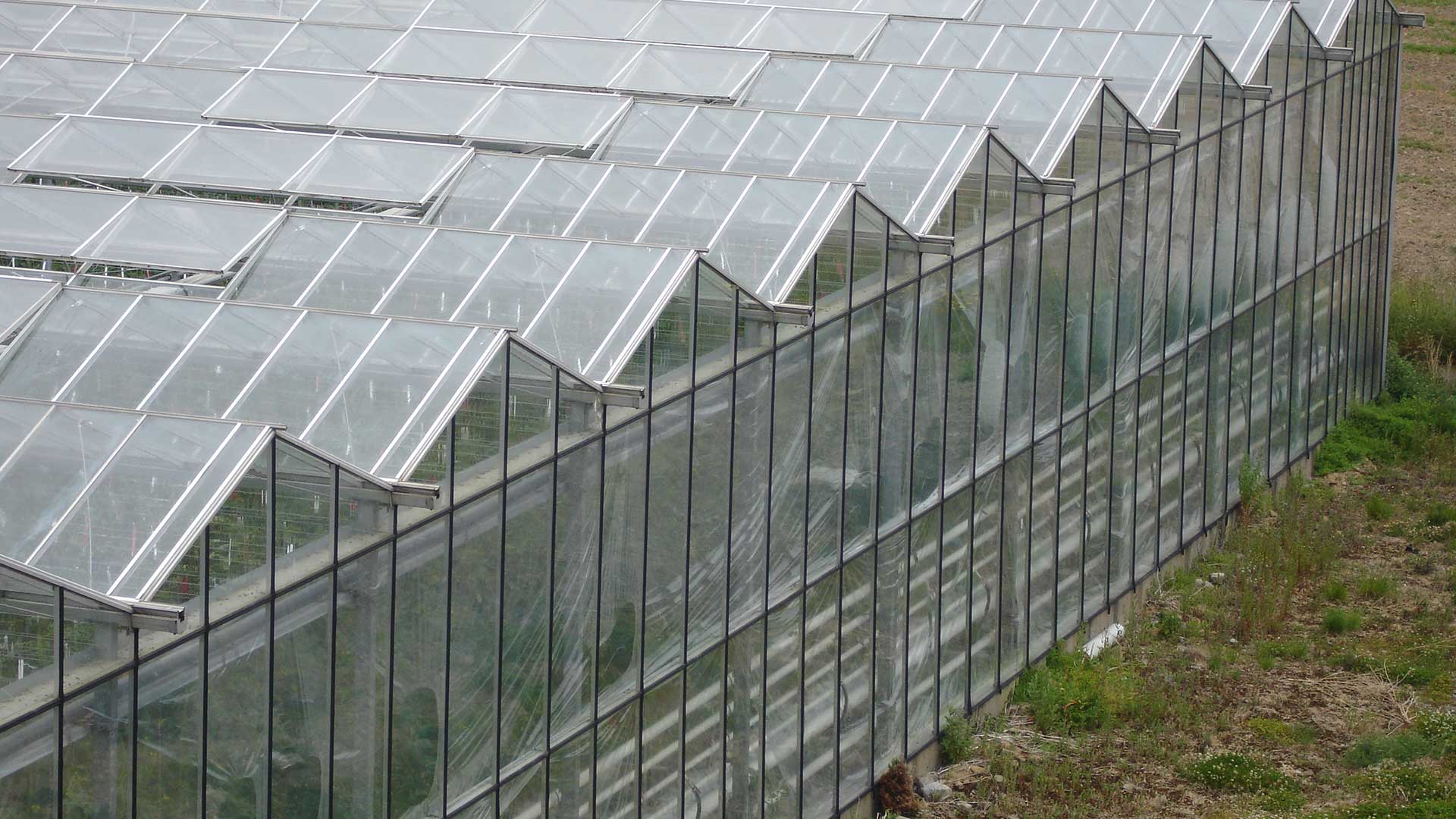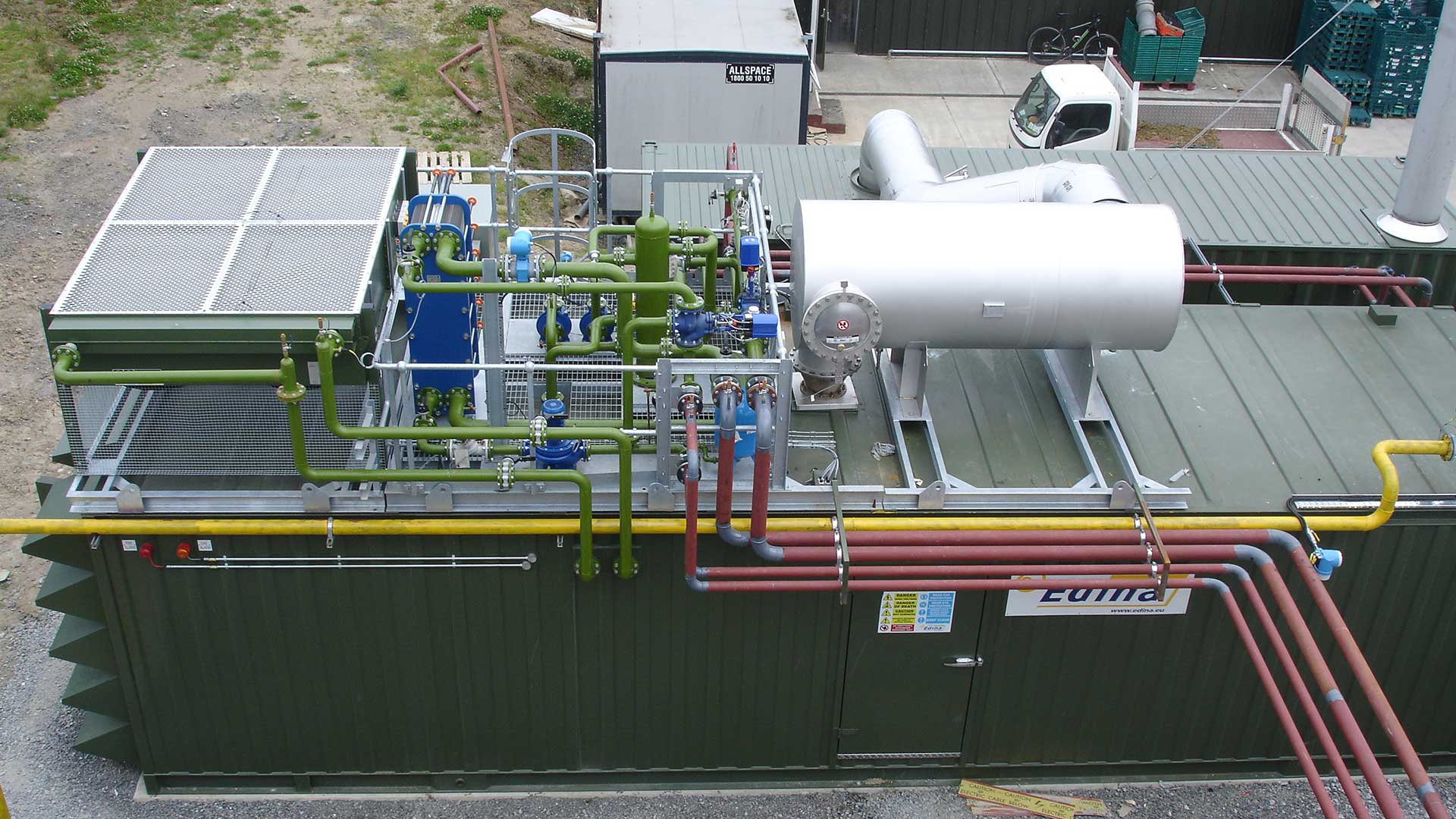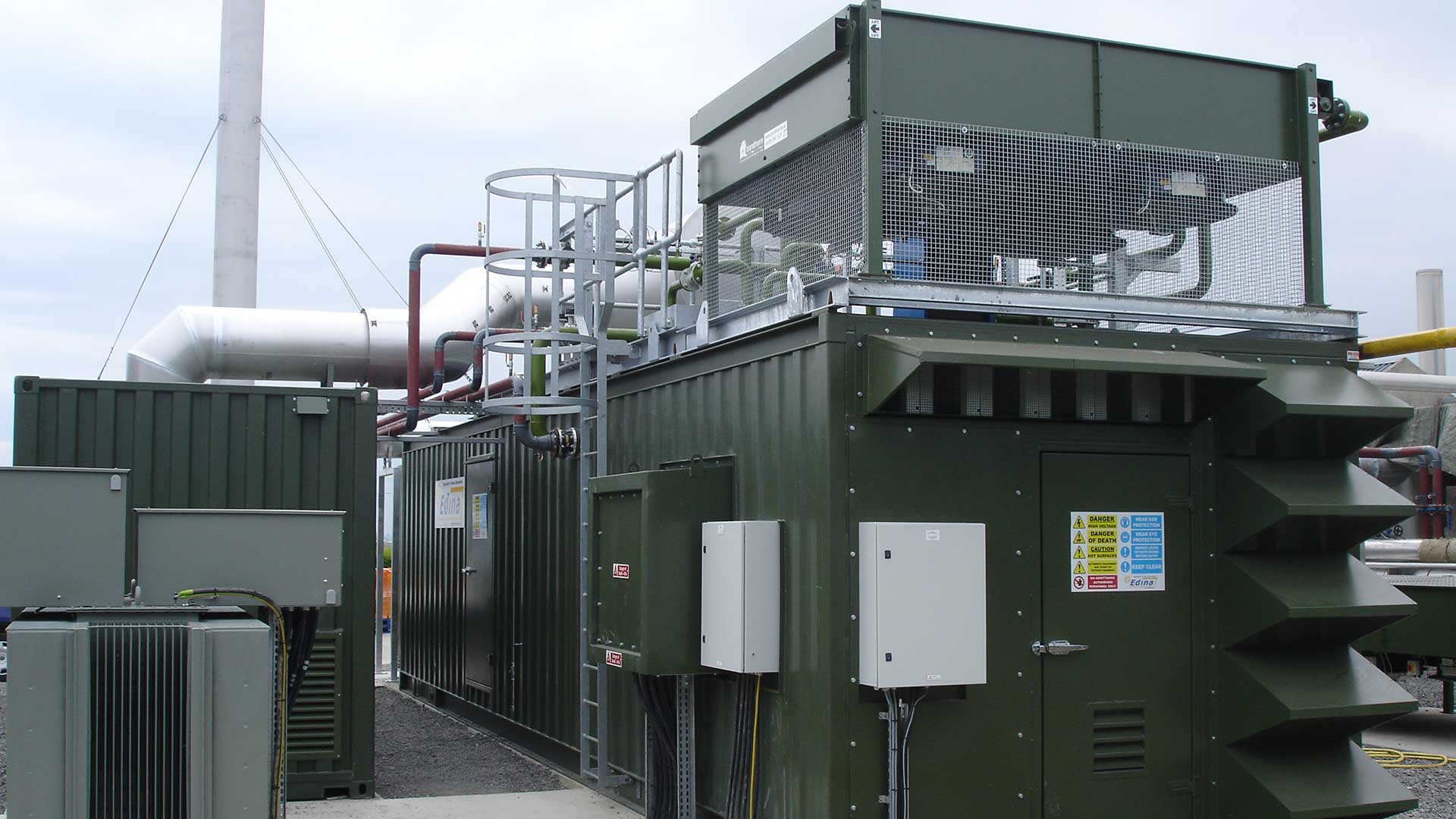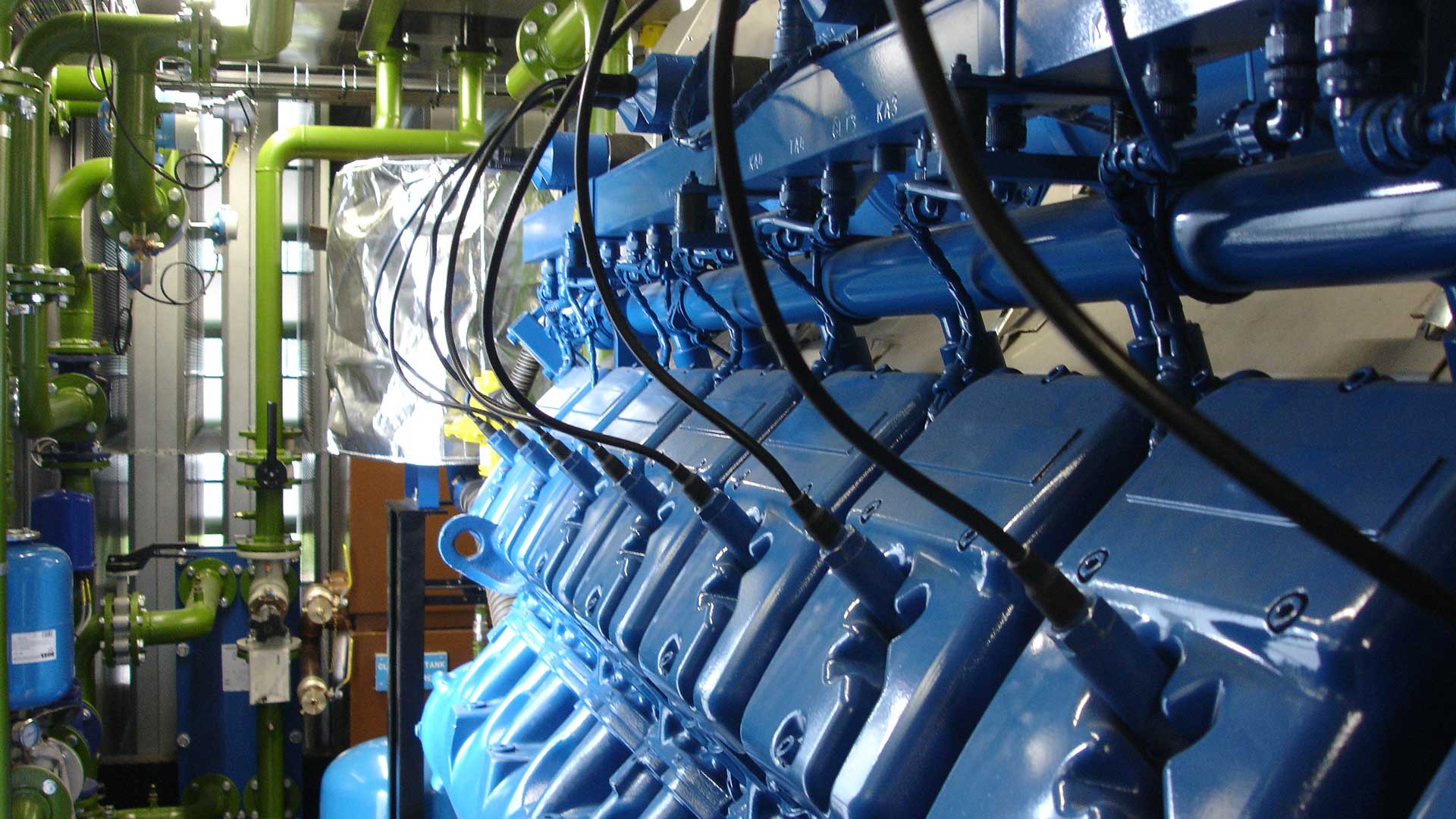Search
Kilbush Nurseries lead the way in efficiency glasshouse heating in Ireland through the use of hot water storage to meet peak heating requirements, and the installation of thermal screening to conserve energy in the glasshouse heating process.





Kilbush Nurseries lead the way in efficiency glasshouse heating in Ireland through the use of hot water storage to meet peak heating requirements, and the installation of thermal screening to conserve energy in the glasshouse heating process.
Kilbush Nurseries is one of the oldest tomato growing businesses in Ireland. Established in the 1930’s by Mathew Foley, this family run business produces over 1,000 tonnes of tomatoes each year. Their facilities encompass over two hectares of tomatoes, grown under glass in state of the art commercial greenhouse units, with integrated packing and transport facilities.
In recent years the Foley family business has shown incredible growth and continues to be at the top of the technological and ecological development ladder in the Irish horticultural sector.
To maintain a competitive edge, the business utilises Combined Heat and Power (CHP) technology to help reduce their energy costs and carbon emissions.
Also known as Cogeneration, CHP is the most fuel efficient and environmentally friendly way of using a fossil or renewable fuel to provide a combined output of heat and power. Its application has been widely used in the industry to aid plant growth whilst reducing energy costs and carbon emissions.
Following a competitive tender process, Edina were appointed the contract to supply, install and maintain the CHP plant. The MWM manufactured TCG 2020 V16 gas engine was containerised at Edina’s manufacturing facility at Lisburn, Northern Ireland.
Fuelled by natural gas and with an electrical output of 1560kWe, the MWM TCG 2020 V16 engine operates at a staggering 96.4% efficiency, around 10% greater than standard CHP installations.
The use of a heat store (buffer) enables near total heat recovery from the CHP plant. As heat from the plant is sent to the store and used overnight to heat the greenhouses as it is less commercially viable to run the CHP overnight when the electricity tariffs are lower. CO2, also from the plant, is fed to the growing crop as a supplement.
The electrical power requirements of the nursery is met with the majority of electricity exported to the National Grid. The control of the electrical export is tailored to respond to demand fluctuations in the National Grid. A “black box” control unit monitors the National Grid approximately every 30 minutes and excess electrical power is then exported providing an additional income, depending on the arranged power purchase agreement.
This project has been assessed by the CER to certify requirements in accordance with the High Efficiency Combined Heat and Power (HECHP) criteria as set down by the EU under Directive 2004/8/EC of The European Parliament, advocating the promotion of cogeneration in the internal energy market. In real terms this means a carbon tax tariff of €0.54 per MWh as opposed to €3.70 per MWh. This plant was certified on 21st July 2014.
In order for the CHP unit to work at its optimum, Edina and Kilbush Nurseries appointed Steuler who have patented the leading CO2 Recovery System, the ECO2 Pro system for greenhouse applications.
The exhaust gases of gas engines having a capacity of up to 2MW approx. and being installed in greenhouses to produce power and heat, are cleaned by the Steuler catalyst system in two stages. This happens in such a way that the necessary requirements of the plant and operational procedures of the nursery are met. Thus, the nitrogen oxides are reduced by 95% by adding a 40% urea solution into the exhaust gas stream in connection with a SCR catalyst.
In a second stage, the so-called oxidation stage, Ethene is reduced by 99%. Carbon monoxide (CO) is reduced, with an emission of <1 ppm of detection limit.
One of the greatest advantages is the use of CO2 from the exhaust, ambient levels of CO2 are around 300 parts per million (ppm) but significant improvements to the crops have been observed when levels are increased to around 1,000 ppm which is achieved from the CHP process. This remains a safe operational level and is closely monitored.
Raising CO2 to these levels has shown an increase of up to 50% in photosynthesis given appropriate light levels, leading to an approximate 30% gain in plant size. This results in earlier, more prolific flowering, higher fruit yield, increased plant growth and vigour, in short, “growers should regard CO2 as a nutrient”.

Client:
Kilbush Nurseries
Location:
Dublin, Ireland
Capacity:
1.6MWe
Operational:
2014
Manufacturer:
MWM
Packager:
Edina
Engine Type:
1 x TCG 2020 V16
Primary Fuel:
Natural Gas
Vegetable growers become energy self-sufficient through Edina biogas CHP.
Read more


Copyright © Edina. All Rights Reserved.